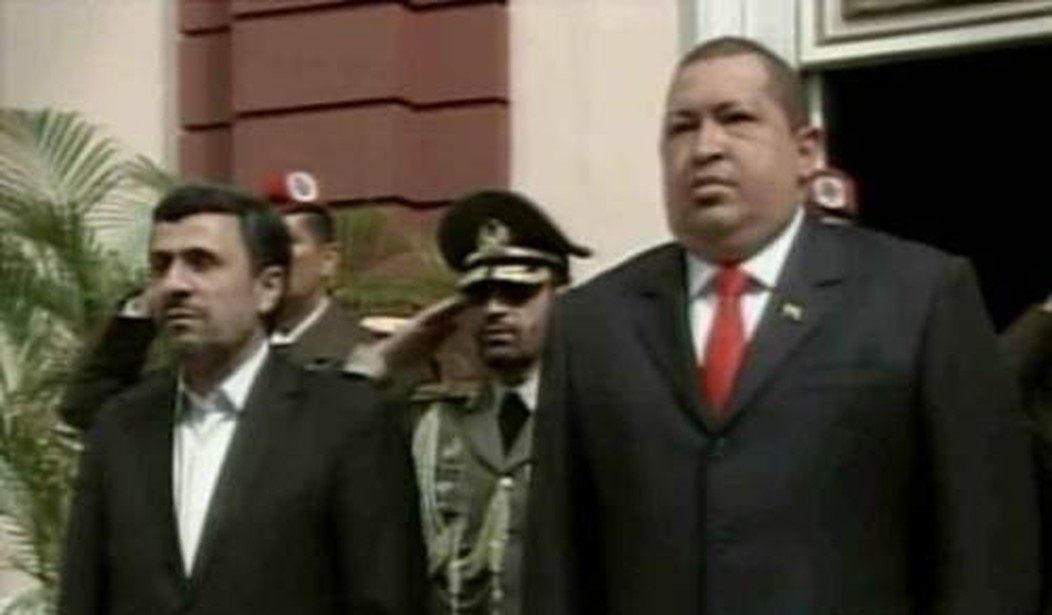An oil refinery in St. Croix, U.S. Virgin Islands, will shut down by mid-February. It is owned by Hovensa, a joint venture of U.S.-based Hess Corp. and Venezuela’s state-owned oil company Petróleos de Venezuela, S.A. (PDVSA).
Losses at Hovensa . . . have totaled $1.3 billion over the past three years and were projected to continue due to reduced demand caused by the global economic slowdown and increased refining capacity in emerging markets, said Brian K. Lever, president and chief operating officer of Hovensa LLC.
There are various other causes for the shutdown and this may be among them:
In January, Hovensa entered into a consent decree with the U.S. Environmental Protection Agency and Justice Department in which the company agreed to invest $700 million on pollution controls after a series of chemical releases affected people living downwind from the refinery. Hovensa also agreed to pay a $5.4 million penalty for violating the Clean Air Act.
Under current market conditions and having experienced substantial losses during the past three years, investing an amount equal to 53.85 percent of those losses as required by the EPA could be quite burdensome.
Closure of the St. Croix refinery may well effect U.S. domestic gasoline prices adversely, particularly on the East Coast:
[T]he coming loss of gasoline supply shocked markets for gasoline futures, which are likely to be soon reflected at the pump. Gasoline for February delivery rose 5.41 cents to $2.8254 a gallon on the New York Mercantile Exchange on Thursday, settling at the highest point since Sept. 8.
In St. Croix, the refinery employs about 1,200 people in addition to about 900 contractors. In 2010, the population of the island was 50,601, so the loss of about 2,100 jobs will have a substantial direct economic impact plus a significant multiplier effect. Food stamps and other welfare benefits are available there and the U.S. federal government contributes. There will also be significant long-term impacts on the tax revenues of the U.S. Virgin Islands, reducing them by at least $60 million per year through diminished real property taxes and employee income taxes.
U.S. mainland-based refineries
Existing U.S. mainland-based refineries have difficulty competing with new refineries in developing countries such as India and China as well as in the Middle East (where the tentacles of U.S. environmental restrictions don’t reach) and we rarely build new ones. Environmental groups have asked a state judge in South Dakota “to strike down a state permit that would allow … the first new U.S. oil refinery built since 1976.” It would “process 400,000 barrels of Canadian tar sands crude oil each day into low-sulfur gasoline, diesel, jet fuel and liquid petroleum gas.”
Construction had been delayed because securing financing had been difficult due to the recession and because of a previous appeal from grant of an original state permit.
The board issued the revised permit in September, approving changes to reflect updated national air quality standards and new pollution-control technology. The revised permit also gives Hyperion until March 2013 to start construction.
After the hearing, Hyperion Vice President Preston Phillips said efforts are progressing to secure financing and an oil supply for the project. “We have to perfect this air permit before we can finalize those aspects,” he said.
In Thursday’s hearing, Graham [counsel for the environmental groups] also argued that the board was wrong to extend the deadline for construction to begin. The original permit expired last February, and Hyperion should wait to seek a new permit based on the latest standards and technology when it is ready to begin construction, he said.
The tactic of delaying regulatory approval for as long as possible, then attacking the approval in court and demanding that the regulatory process begin anew has unfortunately been effective. It doubtless accommodates desires for long and profitable legal careers.
Refineries in the U.S. with capacities of 949,000 BPD recently closed or are for sale while others have curtailed production due to “economics.” Meanwhile,
HOUSTON, Jan 20 (Reuters) – U.S. oil companies are bracing for a potential strike by refinery workers and have plans to keep plants operating if negotiations which began this week for a new labor deal break down.
Representatives of the United Steelworkers union and oil companies began meeting to hammer out a new three-year national contract before current contract expires at 12 a.m. on Feb 1.
In September, the head of the USW negotiating team, union International Vice President Gary Beevers, said without improvements in health and safety protections in the new contract, USW members would walk off their jobs.
The happy land of Venezuela
So how are things in Glocca Morra?
[youtube=http://www.youtube.com/watch?v=fMEleQc-liA&w=640&h=360]
Pretty good.
Venezuela isn’t Glocca Mora and things there aren’t so great. “Oil accounts for more than one-third of Venezuela’s gross domestic product, more than half of government revenue and about nine-tenths of the country’s exports.” Last year, the U.S. imported from Venezuela approximately one million BBD, ten percent of U.S. usage and “more than 40 percent of Venezuela’s oil exports.” We can eliminate that economic assistance for Venezuela by drilling in the U.S., building new refineries occasionally, and, of course, obtaining Canadian oil via the Keystone oil pipeline. Oh. Wait:
This week President Obama handed down what may prove to be one of the most fateful decisions of his entire administration when he rejected the plan to build the Keystone XL Pipeline carrying oil from the tar sands of Canada to the refineries of Houston. The decision did not win him one new vote but was crucial in protecting his environmental flank. The movie stars and Sierra Club contributors were getting restless and had drawn the line in the sand.
But aside from that it was pretty stupid and Congress apparently has the authority to approve the pipeline on its own, subject to a presidential veto. It might even be a useful Republican campaign issue.
Although closure of the St. Croix refinery will be unfortunate for the U.S., it will be worse for Venezuela:
According to 2010 annual management report released by state-run oil holding Petróleos de Venezuela (Pdvsa), Venezuela’s share in US refineries was 1.08 million barrels per day, which were processed in five plants: Lake Charles, Corpus Christi, Lemont, Chalmette and Saint Croix.
Hovensa’s shutdown leads to a 22.7% reduction in Pdvsa’s refining capacity in the United States, which stands now at 841,000 bpd.
Venezuelan-owned PDVSA could help but has done little to keep the Hovensa refinery working even though Venezuelan oil has long been a cash cow for the country. However, PDVSA has other things to do:
What used to be a “mere” oil company has been tasked in recent years with building affordable housing, paving country roads, creating and running farms, and importing, distributing and selling food, amongst other things. As of today, PDVSA will now hold 40% of the venture to develop the country’s gold mines, including Las Cristinas and Las Brisas. Corporaction Venezolana de Guayana (CVG), the state owned heavy industry company, will hold the other 60%.
“What they are creating is a super-state. No longer is PDVSA a state within a state, but now it is becoming something above the state,” says Rafael Quiros, a professor at Central University specializing in oil economy and author of the upcoming “Marchas y Contramarchas del Petróleo en Venezuela: 1989-2001”, a book that analyzes the last few years in Venezuela’s oil policy.
Professor Quiros — widely considered pro-Chavez in the local political divide — is very critical of giving PDVSA tasks other than “production, refining, transportation and exporting” of oil.
It’s a bit worse than simply that PDVSA is spread too thin and is a useful tool to help el Presidente Chávez get reelected. Heavily subsidized to the point that it retails at twelve cents per gallon, gasoline is essentially free in Venezuela and is used expansively as are other non-economic goods. The country also provides petroleum to “needy” countries on extraordinarily generous terms:
Last year, according to the Venezuelan Central Bank, accounts receivable with “friendly countries” reached US$ 23.088 billion. As of September 2011, this number had reached US$ 32.7 billion, a difference of, give and take half a billion of US$ 9 billion in nine month or US$ 1 billion per month.
There may be at least a few small silver linings for the U.S. In preparation for the national elections this year, Chávez needs to find money for projects to provide the illusion of hope for change Venezuelans might, once again, believe in. Closure of the St. Croix refinery may make that even more difficult than at present. Already,
The strategy implemented by Hugo Chávez’s administration to increase spending in order to boost economic growth has been based in part on funds borrowed from Venezuelan banks.
In the past 12 months, the portfolio of bonds and treasury bills issued by the Ministry of Finance has gained 76% from USD 12 billion to USD 21.14 billion, according to data from the Venezuelan Superitendence of Banks.
Maybe not impossible, because “State-run banks, which are under the control of the Ministry of Finance, are the main buyers of debt and own 53% of bonds and treasury bills issued by the government.”
In addition, any hopes el Presidente Chávez may have had to assist his brother in repression, Ahmadinejad of Iran, may be stymied. Even before closure of the St. Croix refinery, Chávez was impotent to help him:
[H]e did not promise to pick up Iranian oil in violation of sanctions, or to refine and market it through PDVSA, or to send any refined products into Iran. Nothing whatsoever.
Put otherwise, President Chavez had nothing to show for all his talk, plans and efforts over the past decade in preparation for precisely such a confrontation with El Imperio. Instead, Venezuela remains abjectly dependent on oil exports via the intermediary of “the global markets of El Imperio” and traded in dollars.
Venezuela needs the U.S. oil market and, until we can produce more of our own oil and import more from friendly neighbors such as Canada, we will continue to need oil from Venezuela and other unfriendly countries. That means we will have to continue supporting them financially.
A clean and healthy environment is good, but there are limits to how closely we can approach what some see as perfection. Excessive regulatory burdens are not good and the United States needs, rather quickly, to strike appropriate environmental balances while taking into account the potential difficulties and disadvantages of securing oil from unfriendly countries as well as from friendly countries subject to attack by others. Nevertheless, we continue increasingly to neglect these factors and therefore continue to fund hostile countries more handsomely than seems to be in our national enlightened self-interest. Lately, we have been galloping off in all but the right directions.









Join the conversation as a VIP Member